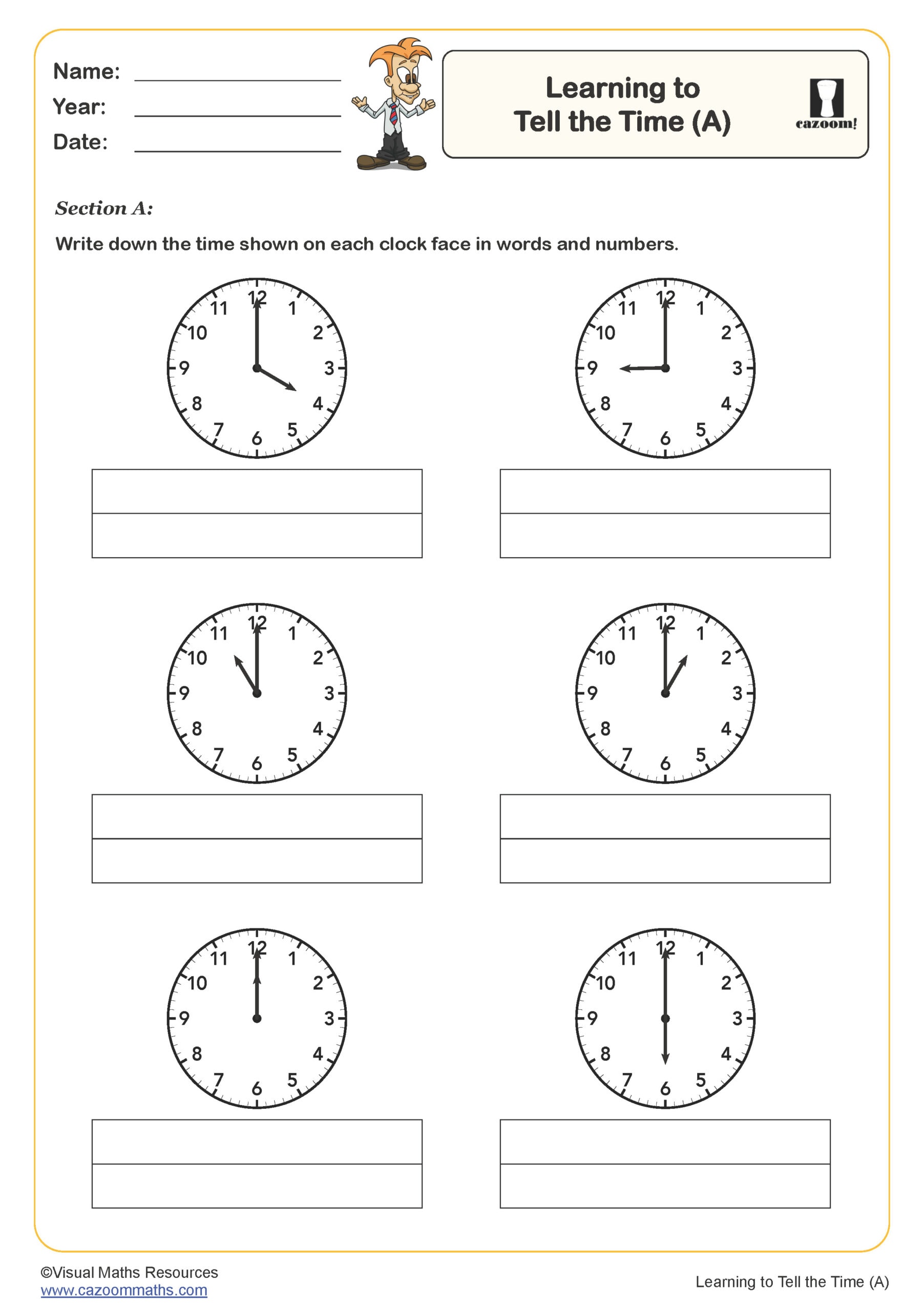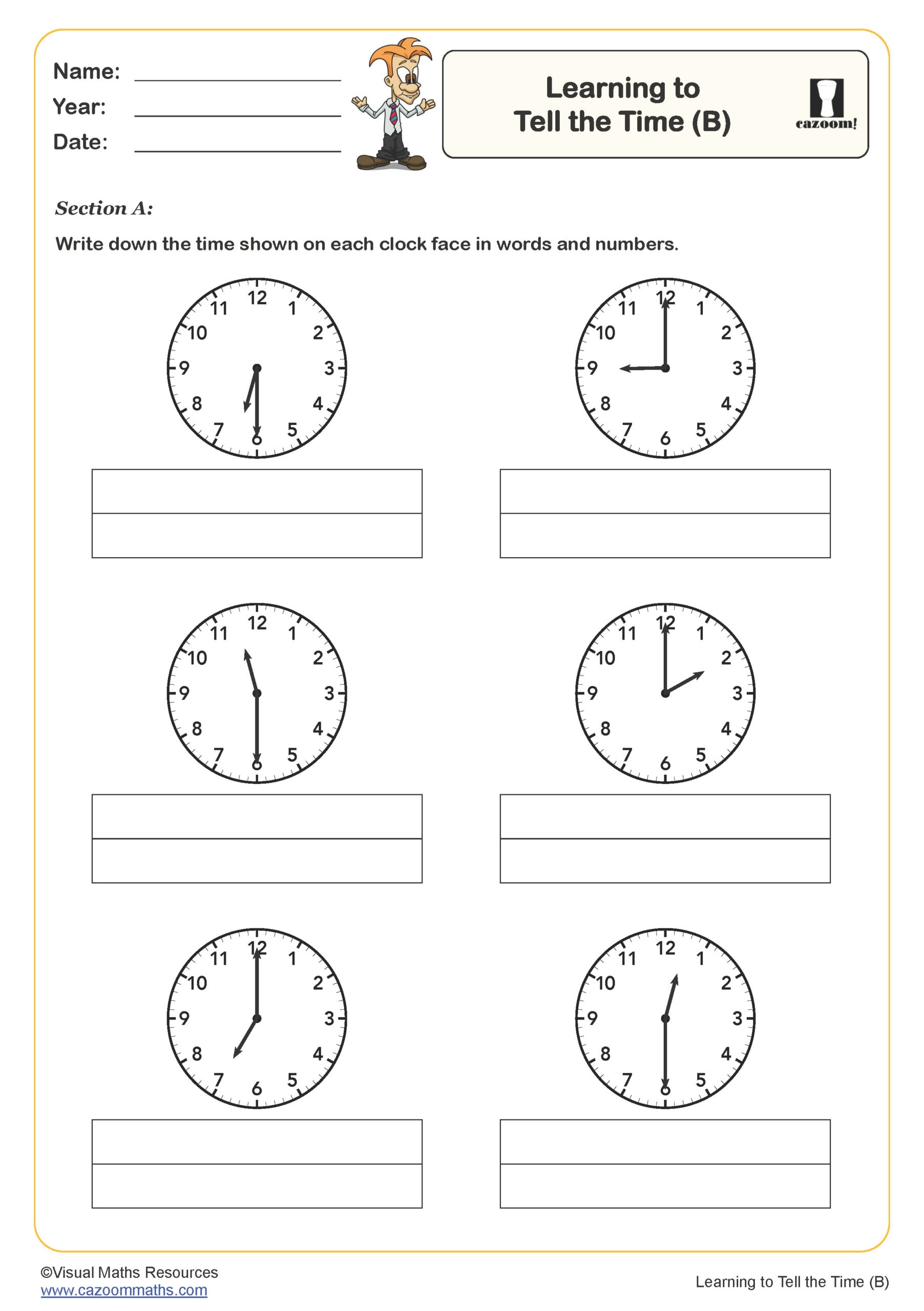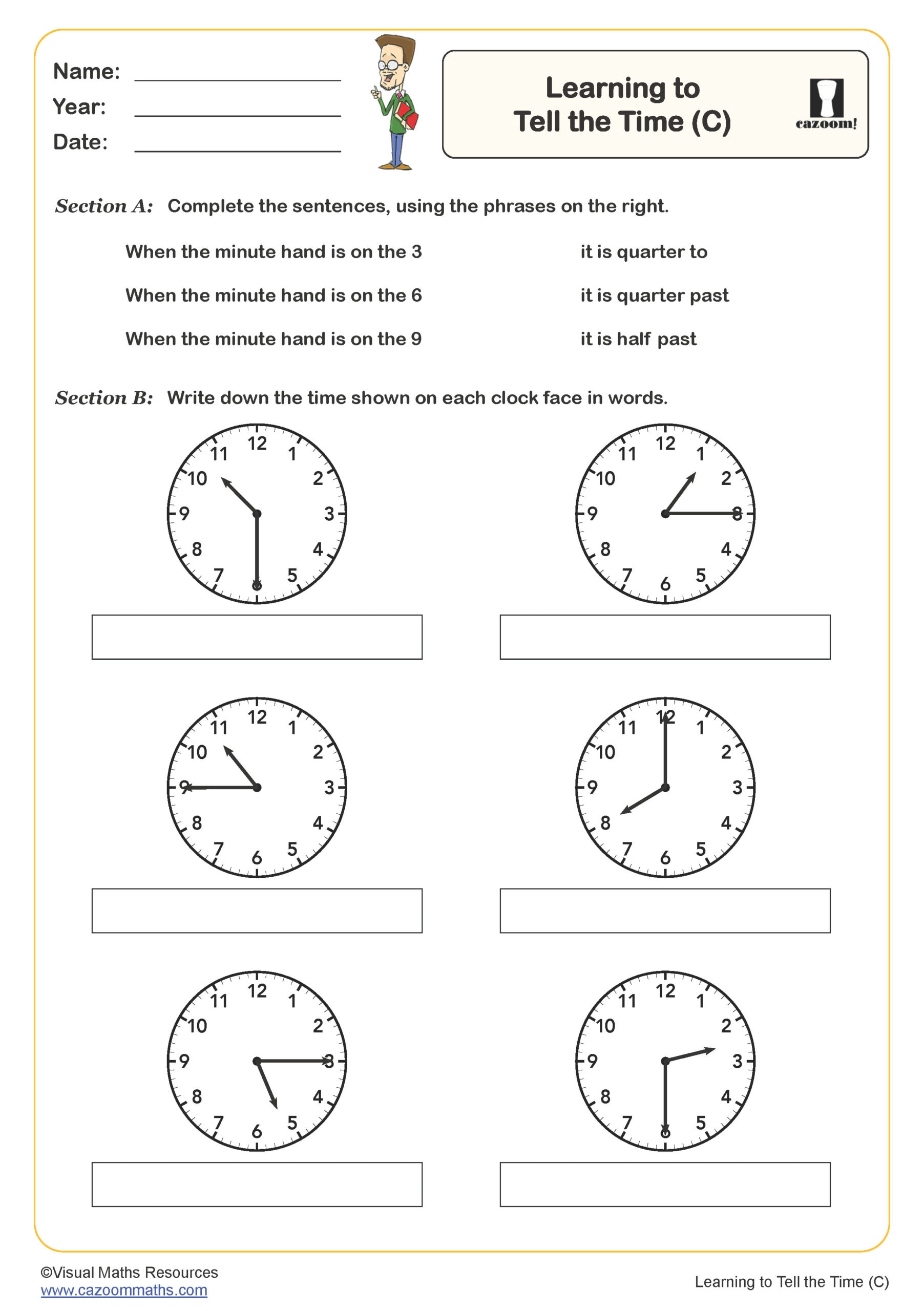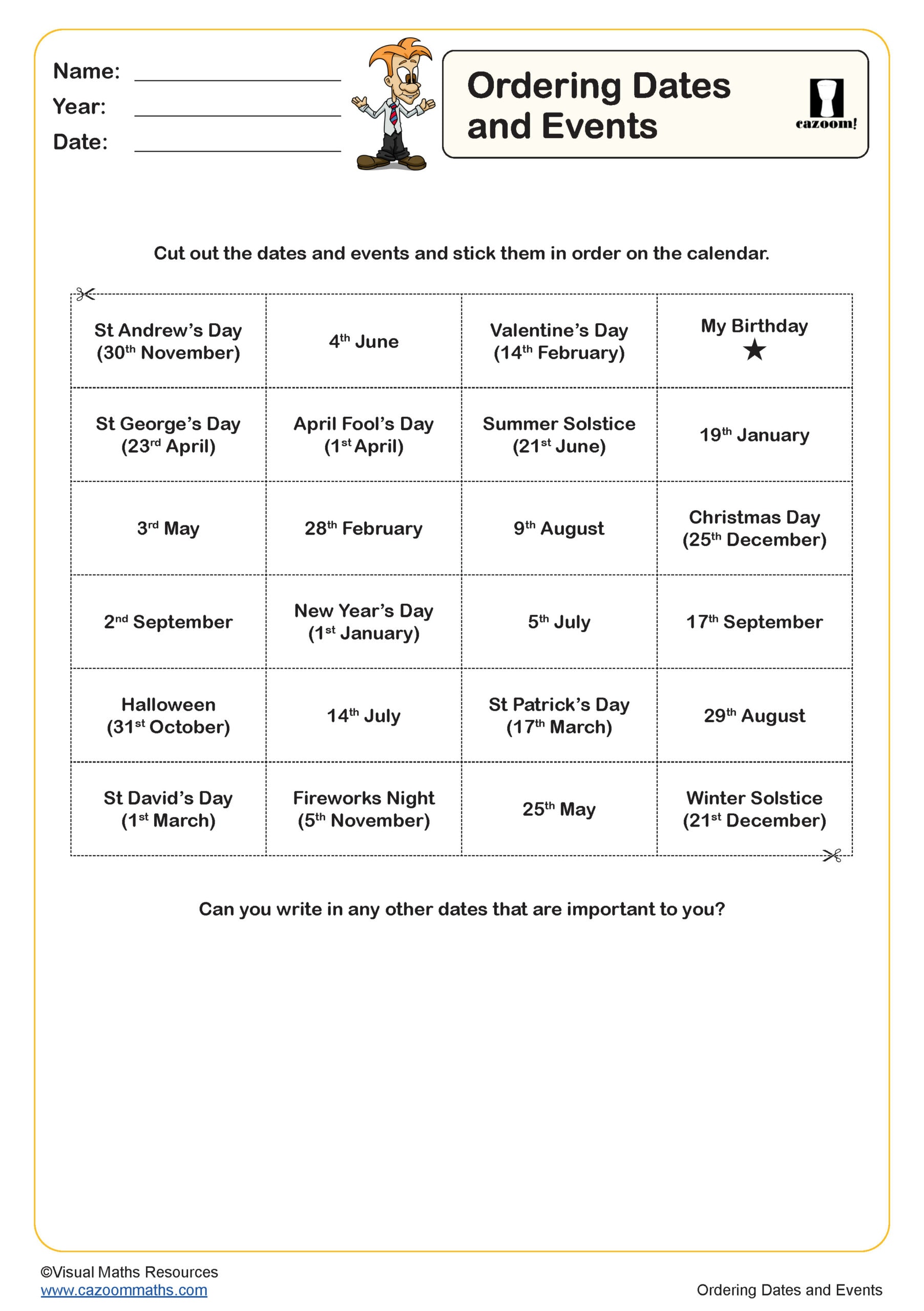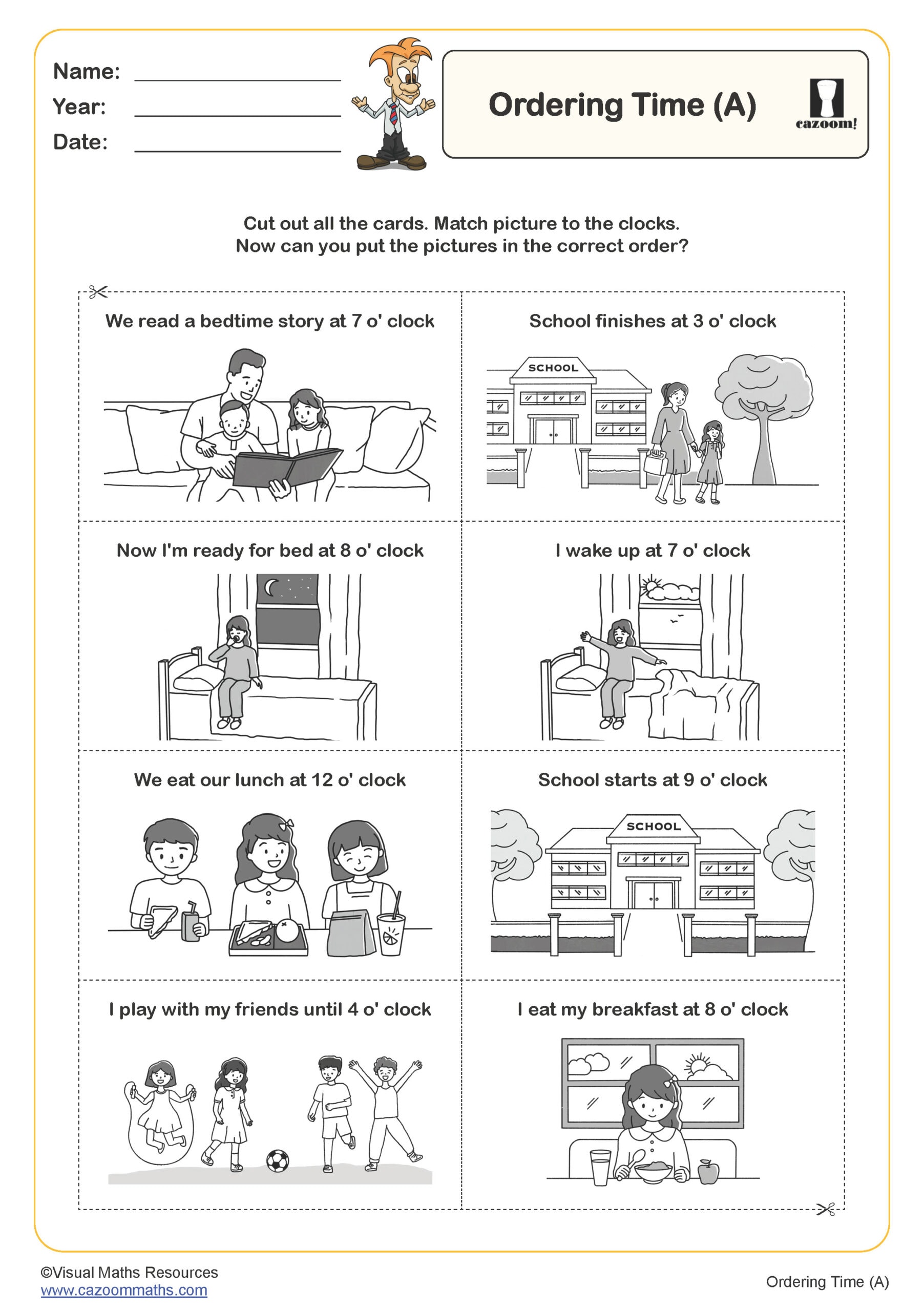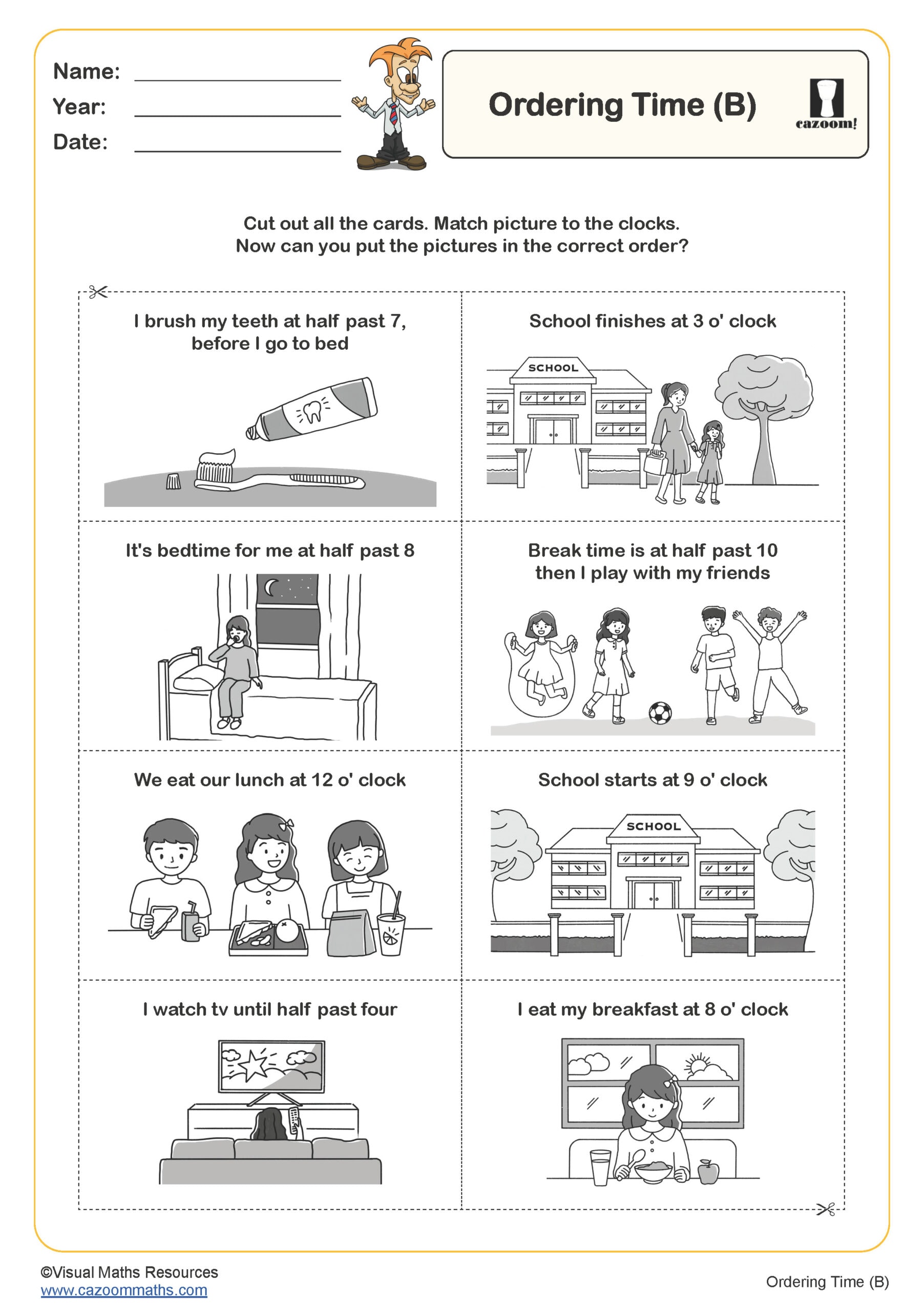Year 1 Telling The Time Worksheets
All worksheets are created by the team of experienced teachers at Cazoom Maths.
Year 1 Clock Worksheets PDF - Complete with Answer Keys
Check out and download our comprehensive KS1 telling the time worksheets PDF collection right away! Our measurement resources will boost your students' knowledge of basic time concepts. Our clock worksheets include activities like- Learning to Tell the Time, Ordering Dates and Events, Ordering Time, and many more. All Year 1 time resources come in a printable PDF format with separate answer sheets for easy marking and assessment.
Essential KS1 Time Skills Covered in Our Clock Face Worksheets
Our telling the time worksheets cover core UK National Curriculum KS1 time objectives through a wide variety of related activities. Your Year 1 students practice skills like reading analogue clocks, matching digital times, sequencing daily events, and solving simple time problems. The worksheets include clear clock faces, time vocabulary practice with morning/afternoon/evening, and real-world scenarios. Each resource targets specific skills like o'clock times, half past recognition, and before/after concepts while maintaining engagement through colourful designs.
Benefits of Using Visual Clock Worksheets for Year 1 Students
Time worksheets develop important life skills that your children use every day. Learning to tell time builds mathematical understanding and supports independence. These KS1 maths worksheets help children organise their day and understand time sequences. Visual clock practice strengthens number recognition and counting skills. Clock face recognition activities build confidence in mathematical learning for Reception and Year 1 pupils.
• Develop essential daily life skills
• Build strong mathematical foundations
• Support daily routine organisation
• Strengthen number and counting recognition
How Year 1 Time Skills Help Children in Everyday Situations
Children will face time-related situations constantly in their daily routines and school activities. Reading clocks helps them understand meal times, school start times, and bedtime routines. Shopping trips involve understanding opening hours and appointment scheduling. Homeschool families find these skills essential for structuring learning time. These natural opportunities reinforce time-telling abilities developed through worksheet practice and classroom teaching.
• Daily routine and schedule management
• School timetable understanding and planning
• Appointment and activity timing skills
• Understanding morning, afternoon, evening sequences
